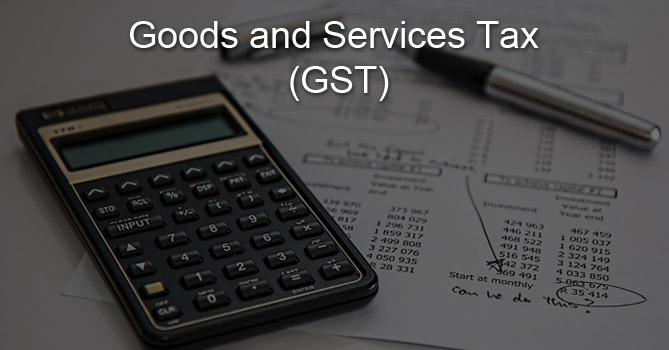Union Finance Minister Arun Jaitley just concluded an important meeting of Empowered Committee of State Finance Ministers in Kolkata earlier this week to discuss all issues relating to the crucial GST Bill. The meeting was attended by finance ministers of 22 states and representatives of 7 others.
Read : Impact of GST on Various Sectors and Common Man
At the end of the meeting, Union Finance Minister Arun Jaitley said that the government had been able to address pending concerns of most states regarding GST and the modality of its implementation. Jaitley also made it clear that there was an overall consensus on not capping the GST rate at 18%, as demanded by the Congress, since the same may have to be revised if any situation in future so demanded. In such cases, the same could be referred to the Committee on GST.
Jaitley spoke of two issues that still needed further discussion and would to be taken up by the Empowered Committee in their next meeting in July; one related to dual control of taxation on certain items between the Centre and the state, and the other regarding revenue-neutral rates.
He stated that all states, barring Tamil Nadu, were broadly in support of the Bill and that he was confident the constitutional amendment bill would be passed in Parliament in the upcoming monsoon session. The revised date for implementation of GST is 1 April, 2017.
The proposed bill comprises 162 clauses and 4 schedules. Under the new GST regime, violators risk a jail sentence of up to five years, along with a fine.
Must Read: What is GST: How will it change India
Markets react positively
The news that the Centre has been able to arrive at a broad consensus with states on GST has sent a positive signal to the markets. Implementing GST will broaden the indirect tax net and will bring in more businesses under the tax regime.
Industries that are likely to benefit are FMCGs – which include manufacturers of packaged foods, tea, edible and non-edible oils, detergents, etc; Auto and Auto components, consumer durables including electrical appliances, textiles, footwear, sanitary ware, adhesives, paints etc.
These industries have a large number of unorganized players who operate outside the tax net. Once these come under GST, organized players will get a boost as the price differential will reduce. By extension, stocks of these organized players is expected to see an upward movement.
Most financial analysts believe the GST is likely to improve the GDP by 1.7 to 2.0%. The results are likely to be visible from FY17-18 onwards.
Congress still playing hardball
Most political parties are in support of passing the GST Bill, but Congress continues to remain adamant on its stand though it finds itself increasingly isolated.
Tamil Nadu chief minister J. Jayalalithaa met Prime Minister Narendra Modi personally to put forward her list of demands for the state and used the occasion to discuss concerns regarding the proposed GST. With a strong performance in the recent state elections and holding a significant number of seats in Rajya Sabha, Jayalalithaa knows this is her best chance to force the Centre to concede to her demands.
In West Bengal, Mamata Banerjee has already announced her state’s support for GST but is using her support to get the maximum out of the Centre. The fact that Arun Jaitley decided to hold the meet in Kolkata drove a message across political lines that the NDA now had greater support in the Upper House and was more confident of getting the Bill passed, regardless of the Congress position.
What Tamil Nadu’s objections are
Jayalalitha’s stated position is that implementing GST will force the state to lose Rs 9,720 crore in revenues besides losing its fiscal autonomy. The state wants to keep petroleum and petroleum-related products outside the GST net permanently and would like to retain the right to set higher taxes on tobacco and tobacco-related products.
Tamil Nadu wants further discussion on dual administrative control mechanism between Centre and states on certain items, revenue-neutral rates, methodology of compensation and its applicable period, and various floor rates with bands.
Chief Minister Jayalalithaa has strongly articulated that her state was a major manufacturing state and shifting the point of taxation from source to destination will hurt the state’s revenues.
What is interesting to note is that she has proposed to the Centre a mechanism to give a full 100% compensation to the state for its revenue loss for a period of five years.
The question is, why five years? After all, the burden of tax loss will fall on the next government in the state after five years and the loss would only be higher as the state’s revenues will certainly increase over that period.
Despite Tamil Nadu’s objections, FM Jaitley is confident of getting the state government’s support as and when the Bill comes up in Parliament.
Online businesses worried
The Finance Minister finally ended the suspense regarding the inclusion of online purchases under GST. Jaitley announced that from 1 April 2017 onwards, uniform GST will apply on all online purchases and the same would be applicable at the first point of financial transaction. This put to rest the ambiguity regarding taxation on goods that were sold in one state but delivered in another.
While most of the larger online platforms like Flipkart, Amazon and Snapdeal welcome the GST, as it will do away with multiple taxation norms of states, they are concerned that the new bill will adversely impact smaller sellers on their platforms who operate on slim margins.
The proposed GST will force these sellers to either pass on the increase to consumers thus risking a loss in market share, or absorb the increase, thus reducing their already low profit margin.
Another area of concern pertains to ambiguity of GST applying to peer-to-peer sales of second hand products on platforms like OLX and Quikr. But the industry at large welcomes the GST and is hoping that this monsoon session of Parliament will finally see the Bill become law.
Read More
New GST regime and its future impact on telecom industry in India
Swachh Bharat Cess on Service Tax
Corporate Tax in India
Indo-US Tax Information Exchange Agreement
New tax to reduce beverage consumption in India – how effective will it be?
Economic Reforms in India
Tax filing for NRIs
Black Money in India
MUDRA Bank
Land Acquisition Bill
What is GST?
How to register for GST?
Various Goods and Services Tax forms
GST Rule Changes
Implementation of the GST in India
Costlier Or Cheaper Under GST?





